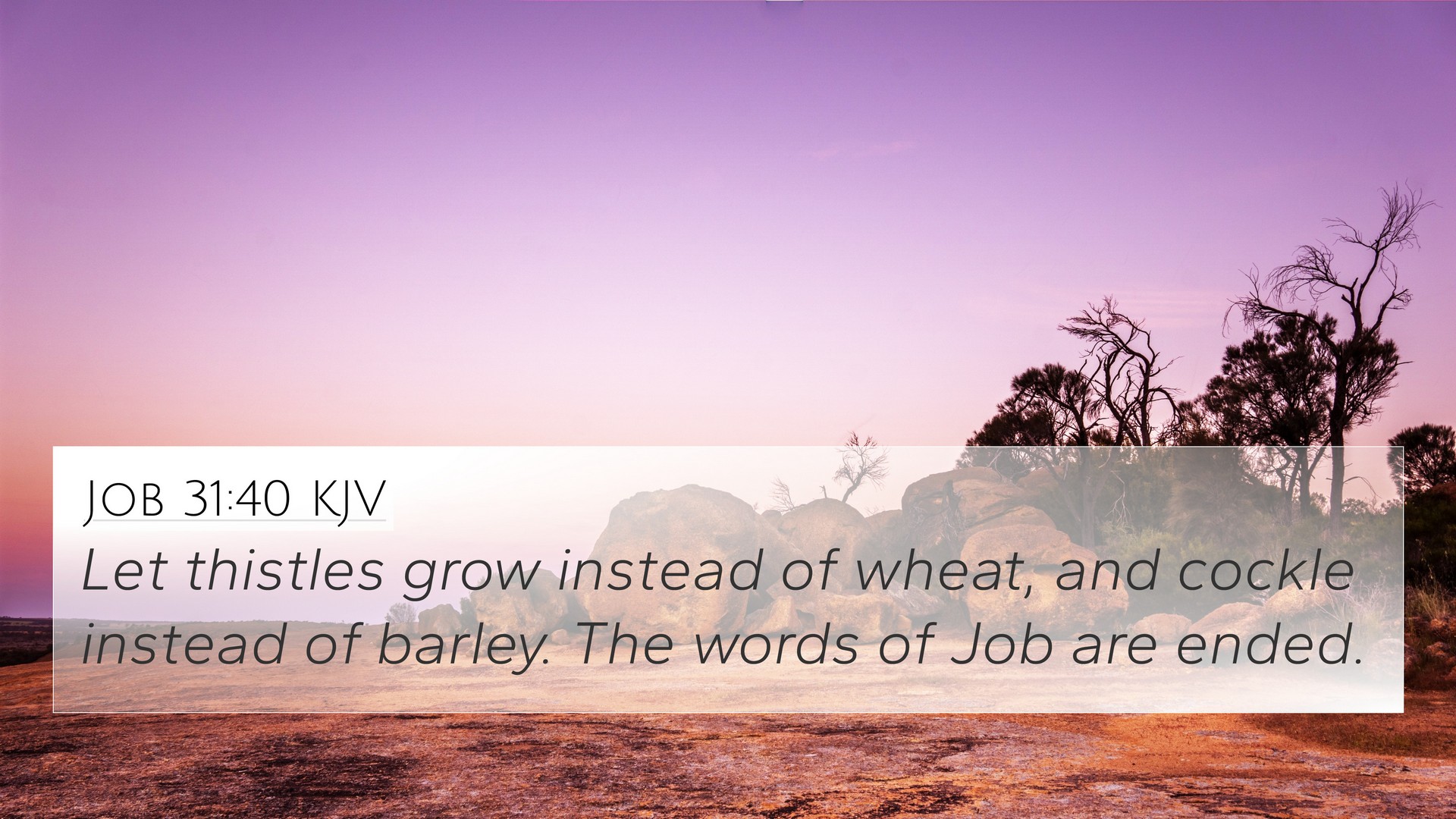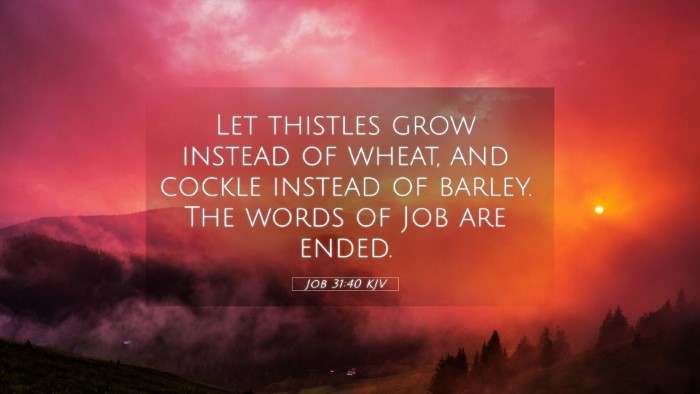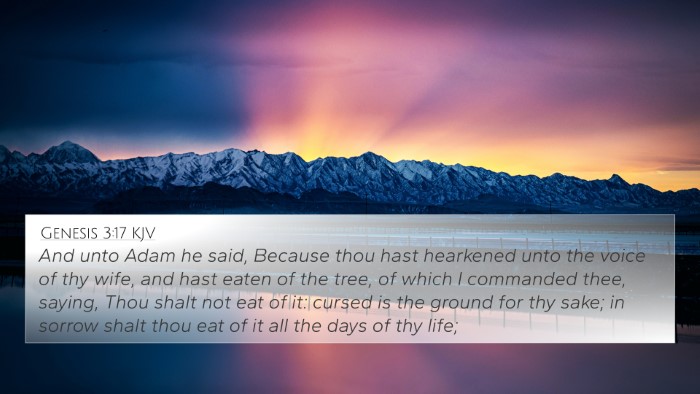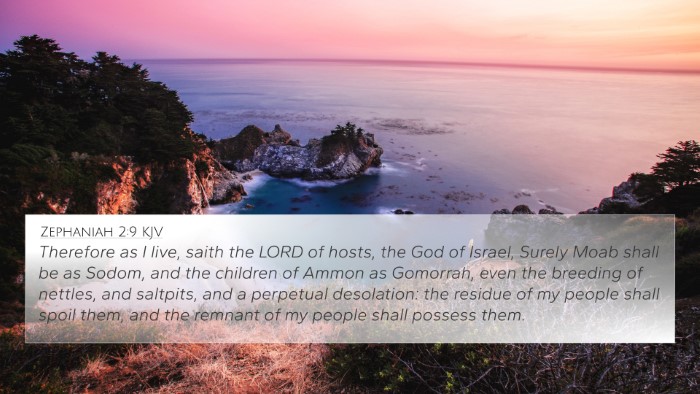Understanding Job 31:40
Verse: Job 31:40 - "Let thistles grow instead of wheat, and stinkweed instead of barley." The words of Job are ended.
Summary of Job 31:40
In this statement, Job employs powerful imagery to express his profound sense of injustice and the depth of his suffering. This final declaration encapsulates his resolve and the summation of his arguments throughout the book. Job concludes his defense of righteousness with a stark metaphor, highlighting the futility and barrenness of his current plight.
Commentary Insights
-
Matthew Henry's Commentary:
Henry notes that here Job is emphasizing the severity of his wishes against any notion of his wrongdoing. In wishing for thistles instead of wheat, he is essentially declaring that if he has been untrue to his integrity, he deserves nothing good.
-
Adam Clarke's Commentary:
Clarke highlights that this metaphor conveys Job's disappointment in life. The thistle represents a curse or adversity while wheat symbolizes blessings and sustenance. Job’s words emphasize a wish for barren land, reinforcing his desire never to have experienced the blessings if his character were false.
-
Albert Barnes' Commentary:
Barnes reflects on the conclusion of Job’s speeches. He notes that Job, feeling wronged and misunderstood, makes a dramatic expression of his innocence. The choice of crops symbolizes a life devoid of joy and prosperity, aligning with Job’s intense lamentation.
Inter-Biblical Connections
Job 31:40 finds thematic parallels and connects with various other scriptures that delve into suffering, integrity, and divine justice. Here are some relevant cross-references:
- Galatians 6:7-8: Indicates the principle of sowing and reaping, where actions lead to outcomes, much like Job's metaphorical wish.
- Psalm 107:34: Speaks of God turning fruitful land into barrenness, aligning with Job’s curse and despair.
- Proverbs 22:8: Discusses the consequences of sowing iniquity, akin to Job's perspective on justice and personal conduct.
- Isaiah 5:24: Uses similar imagery of growth and barrenness to discuss judgment, reflecting Job's lamentation.
- James 3:12: Questions if a fig tree can bear olives, emphasizing the nature of true integrity as compared to deceptive appearances.
- Matthew 7:16: The idea of recognizing what is sown and grown in life supports Job's resolve to demonstrate righteousness.
- Luke 6:43-45: Discusses the good fruit produced by a good tree, touching on the essence of Job’s argument for integrity.
Thematic Connections
This verse encapsulates major themes of suffering, integrity, and divine retribution found throughout the Bible, calling attention to the struggles faced by those who uphold righteousness amidst persecution.
Conclusion
Job 31:40 serves as a poignant expression of Job's anguish and integrity. Through biblical cross-references, we can gain a comprehensive understanding of the themes interwoven within scripture, elucidating how Job's experiences resonate with larger biblical truths. Using tools for Bible cross-referencing and a concordance will greatly enrich one’s study and understanding of these connections.







